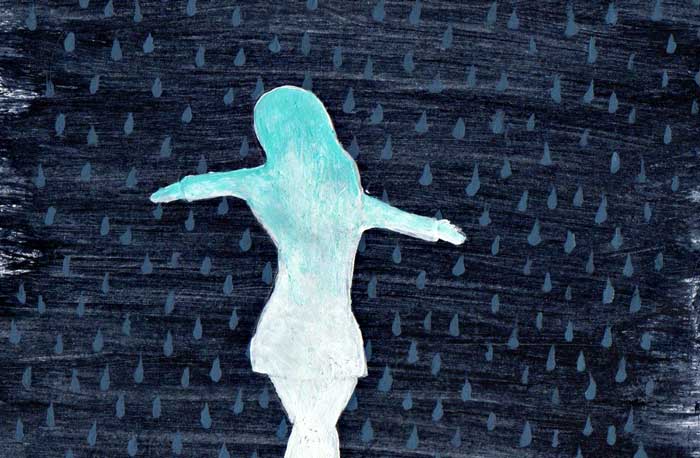What Does It Mean To Quit Dance?
BY EMMALY WIEDERHOLT; ILLUSTRATION BY VIDA VILJOEN
I have a good friend who is a very talented choreographer and dancer, but who has had several crises over the past few years when she’s wanted to quit. Though she’s never quite pulled the trigger (dance has a way of not letting its practitioners go so easily), I’ve always told her if she really feels that way, she should quit. Unequivocally.
Dance is glorified and romanticized in our cultural psyche. Of course, that glorification never seems to equal across-the-board financial support, but when you tell any random person you meet you’re a dancer, they suddenly see you through some quixotic haze. Never mind you’re moonlighting to make your budget work. Never mind you don’t do anything that resembles So You Think You Can Dance. To them, you’re pursuing your dream.
But dreams aren’t made of peach fuzz, and any good dream can go bad. Pursuing dance past high school or college takes guts. And not just courageous, trying-to-make-it guts. It takes guts to digest routine rejection, guts to overcome body hatred not to mention injuries, aches and pains, guts to understand the full meaning of no retirement plan, guts, guts and more guts.
I recently completed a project interviewing over 50 dancers over age 50. These are the people who never quit. The idea behind the project is to shed light on ageist ideas surrounding bodies and beauty in mainstream dance culture. But it is also about what it means to not quit. To have those guts.
But I want to talk about a different kind of guts. I think it takes guts to quit dance too. I think it takes guts to understand you will transition out of your flexible lean musculature. I think it takes guts to tell people who have romanticized your dance career without knowing anything about it why you are quitting. I think it takes guts to look at a road you have travelled for a long time and decide to try a new route.
Maybe everything about dance takes guts, both pursuing it and quitting it.
This is why I have asked several people who were once enmeshed in dance but who have pursued a totally new path to reflect on that transition. What was the catalyst that put them on that new path? How has the experience of pursuing dance reverberated throughout their lives regardless of leaving the dance floor? Under what circumstances would they practice dance again? All this October, follow Stance on Dance to hear the stories of what it means to quit.
Let’s get these voices out in the open and have a real dialogue about what it means to keep dancing or quit dancing, because I somehow suspect these two choices are not so different. Nothing is as dichotomous as black and white, and success and failure are often one and the same. In other words, the stories of disconnect are part of the dance journey too.


2 Responses to “What Does It Mean To Quit Dance?”
Thanks Daria! I appreciate hearing your perspective!
i would be very interested in hearing more about this and people’s variety of reasons. I left the ballet and dance world for 7 years but was drawn back in 2 years ago to teach and I’m so glad I went through both experiences. My mother is in her mid 70’s and has never quit. Even now she still takes ballet at least once a week and always told me that life without dance is empty. During those 7 years I would disagree with her, but now that I have returned I have new perceptions about lifelong dancers. Looking forward to your research and thank you for creating this page.
Comments are closed.